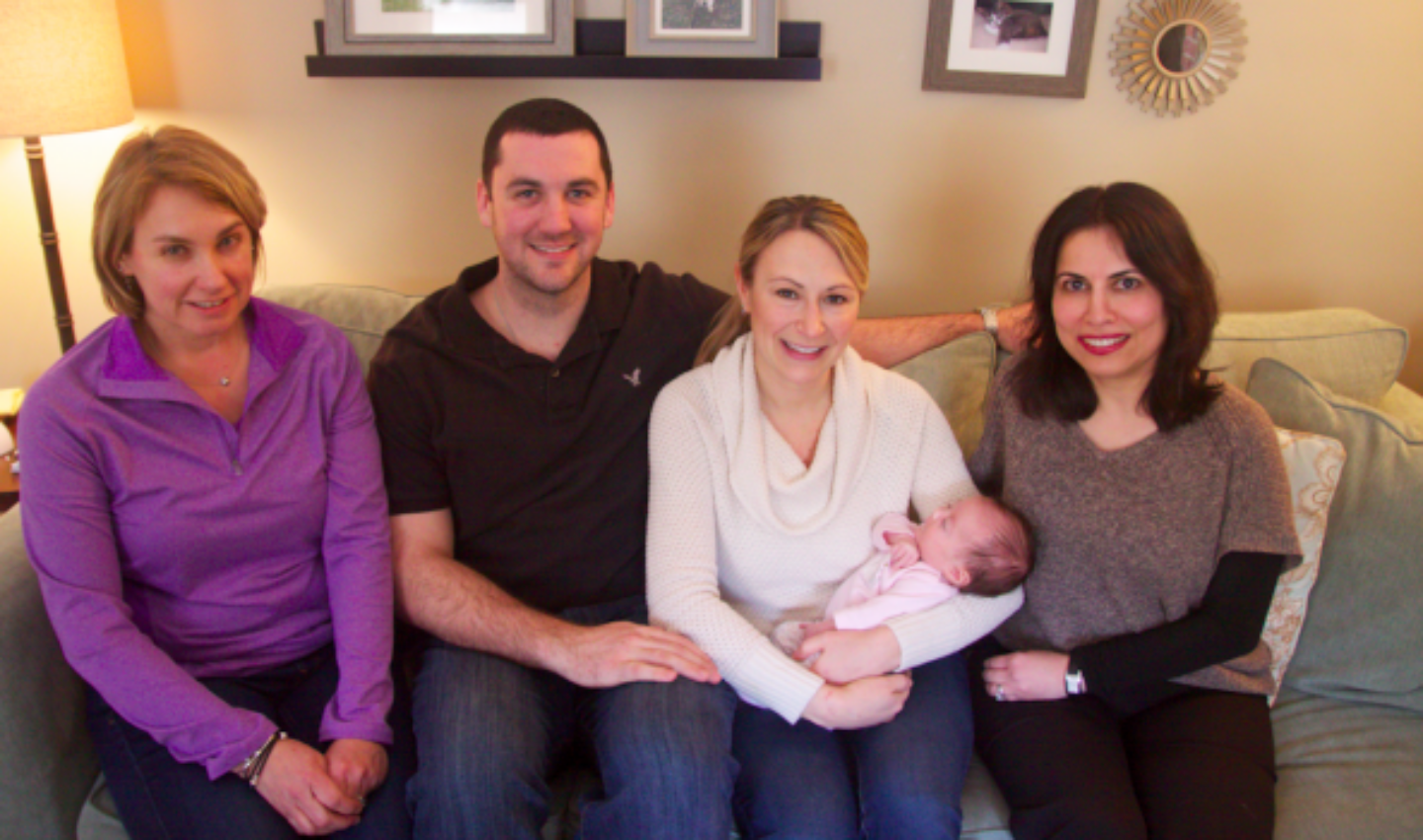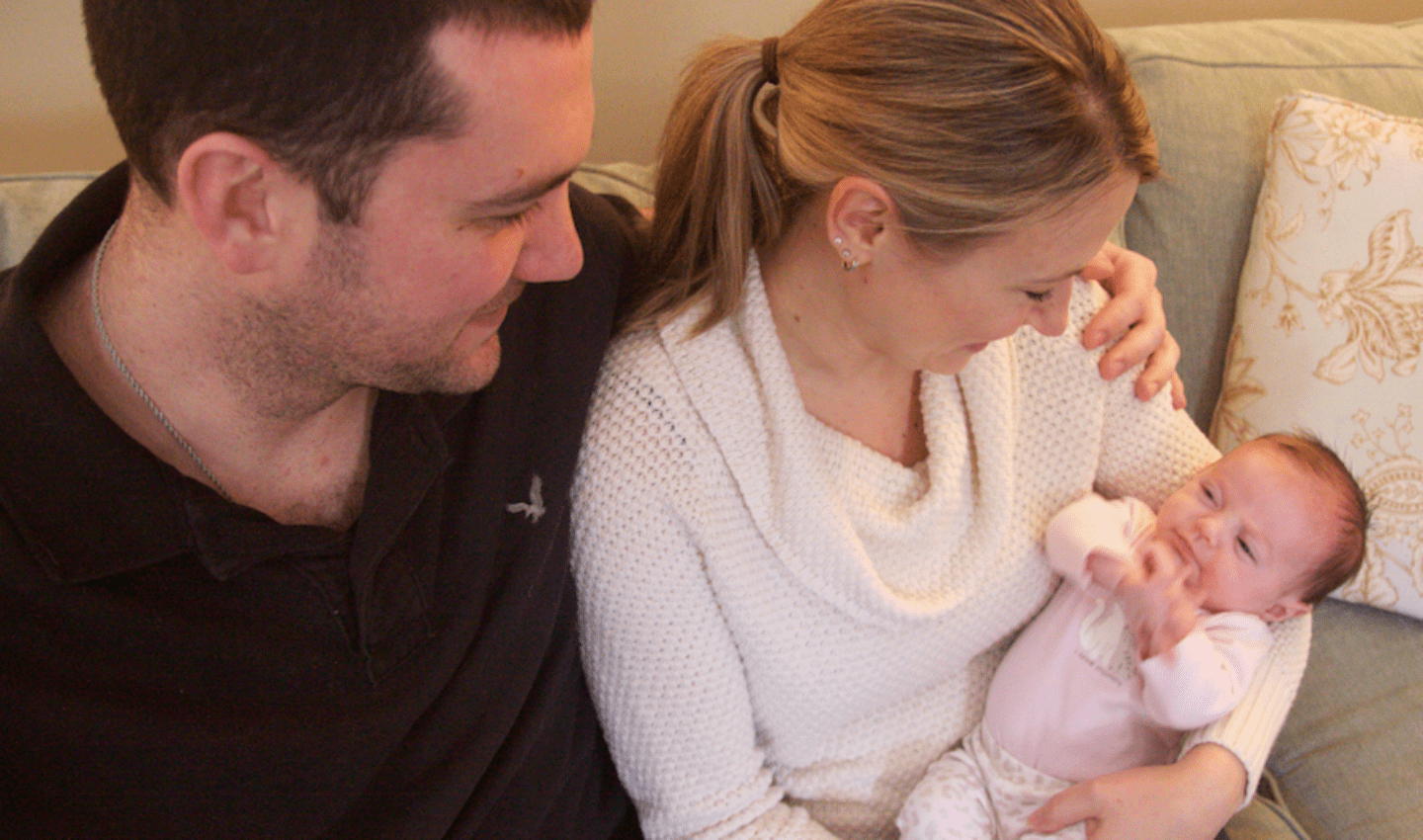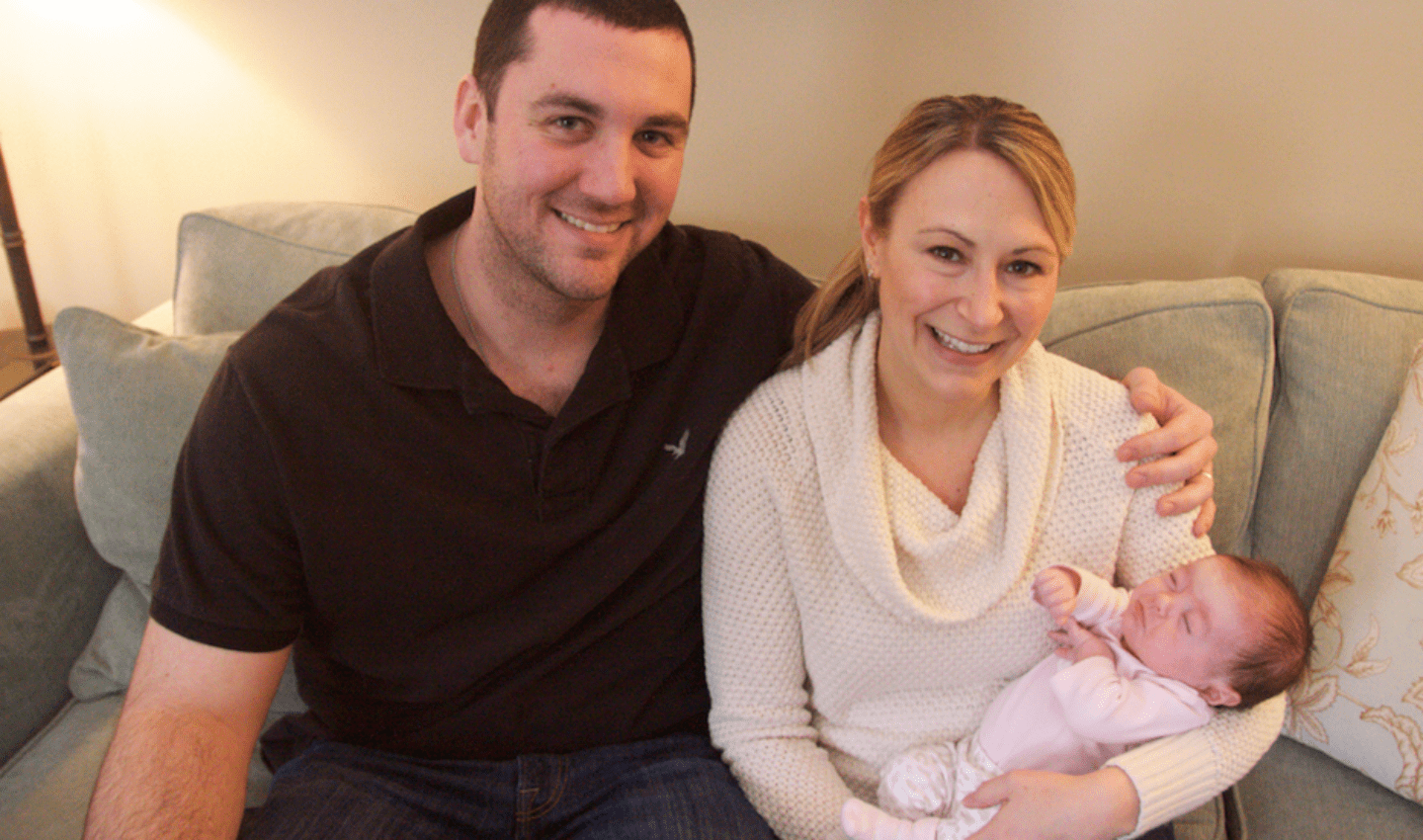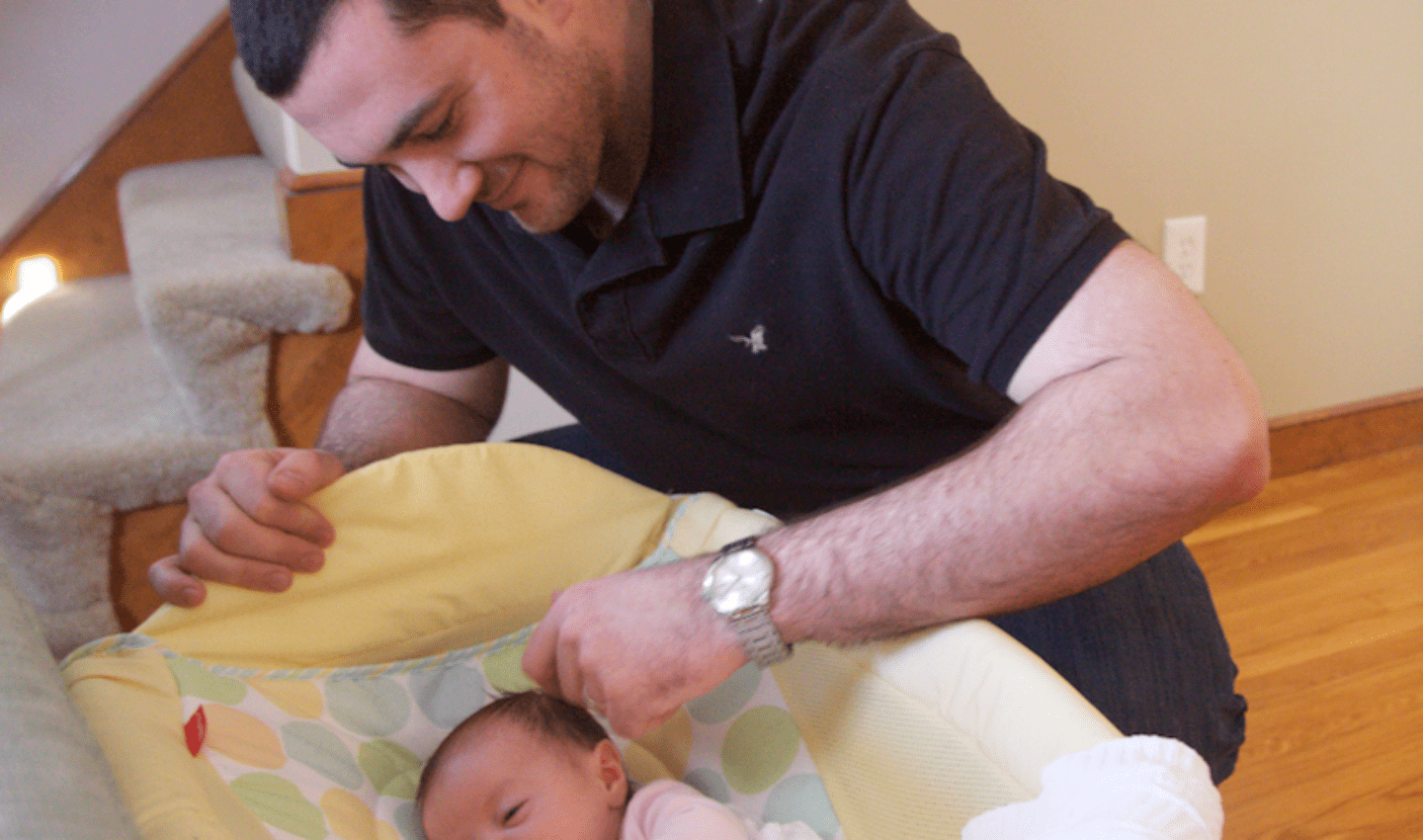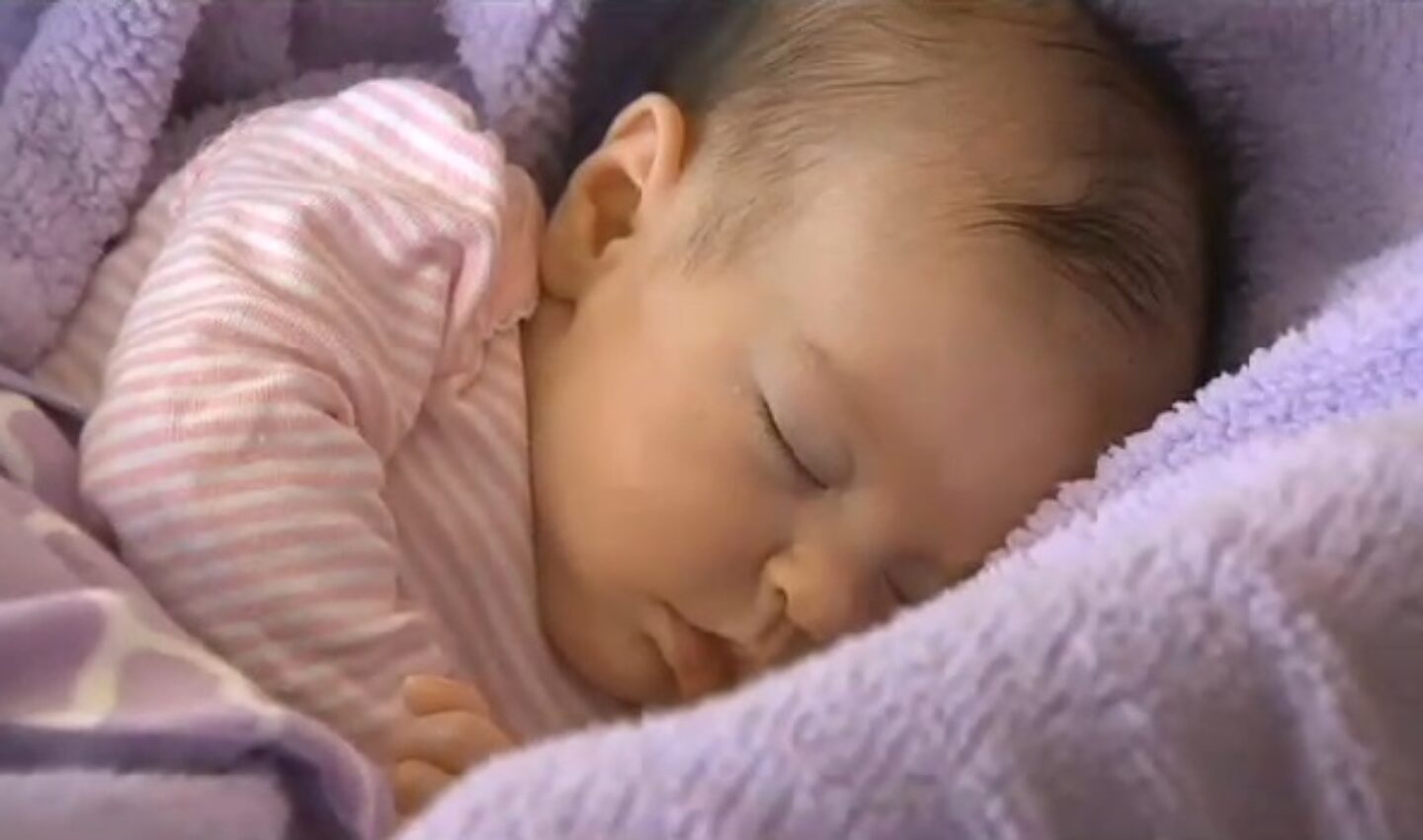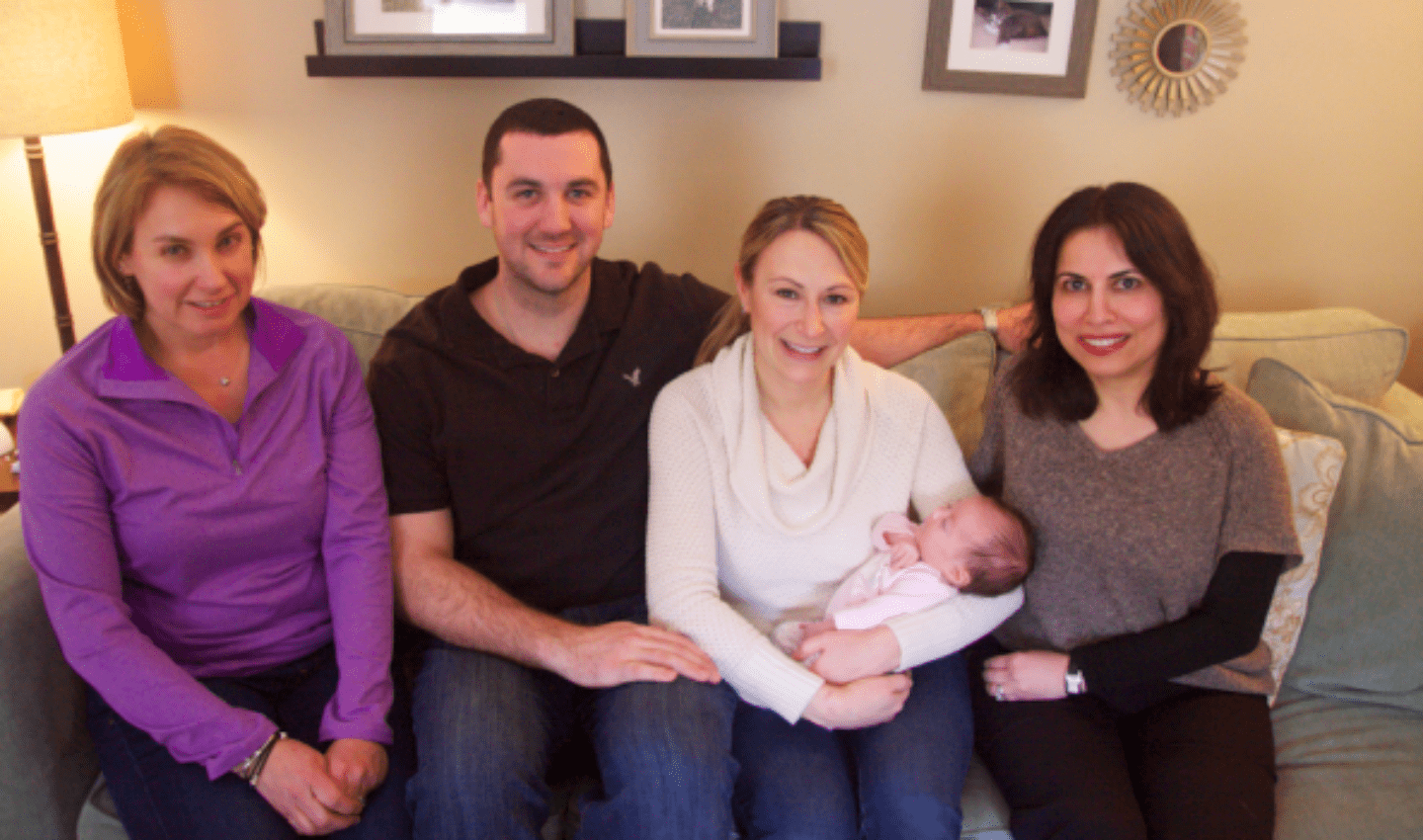“Above and beyond the call of duty” doesn’t quite capture the heroic acts by New England Newborn Screening Program staff in the middle of a January blizzard, when they braved a snowbound state to collect blood samples from newborn babies that needed to be screened for early diagnosis for a range of rare disorders. The New England Newborn Screening Program is operated by UMass Medical School.
Most days, United Parcel Service delivers the specimens, taken shortly after birth, to the screening program’s lab in Jamaica Plain for testing. But with the record-breaking storm knocking commercial services off the road, Newborn Screening staff made the rounds of Boston hospitals themselves — and in doing so, saved newborn Juliana Salvi’s life.
Juliana’s story — and an emotional meeting between her parents and staff from the screening lab, was broadcast in a WCVB-TV news segment. The story has continued to garner attention from news media, including WHDH-TV Channel 7, ABC News, Yahoo! News and Woman’s Day. Social media has spread awareness of the story, and its popularity on Twitter is showcased in this Storify.
Juliana, now eight weeks old, was born with a rare genetic disorder called galactosemia, which prevents the body from being able to metabolize a common sugar in milk, galactose. If not detected within the first days of life, when babies are on a diet of only milk, the disorder can quickly cause permanent brain damage and even death.
“Unknowingly we were feeding her milk. Because she’s a baby,” Juliana’s mother, Charlene Salvi, told WCVB-TV. “Basically it was poisoning her.”
Juliana had a routine birth, but it took place during the January blizzard. As they do with all newborns, hospital workers collected drops of blood from a needle prick in Juliana’s heel when she was two days old, but the storm prevented UPS from picking up the sample and delivering it to the laboratory in Jamaica Plain.
That’s when screening staff took to their cars and public transportation to gather the blood samples from 25 hospitals in eastern Massachusetts. Melody Rush, a newborn screening lab technician, picked up Juliana’s sample and brought it back to the lab for processing that same day.
“We all worked together to pick up these specimens,” Rush told WCVB-TV. “It was a nice feeling knowing it made a difference in that case.”
That same night Juliana’s parents brought her home from the hospital. They thought she only had a severe case of jaundice.
“We were only home for a couple of hours before we got the call from the lab telling us that we need to get to Children’s right now,” Mike Salvi, Juliana’s father, told WCVB-TV.
Routine screening of newborns leads to the early detection of treatable disorders. Most babies, including those with disorders, appear healthy at birth.
“The goal of newborn screening is to identify babies who would otherwise go undetected and with treatable disorders and pick them up before there’s irreversible damage,” Inderneel Sahai, MD, the screening program’s chief medical officer, told WCVB-TV. Dr. Sahai is an assistant professor of pediatrics at UMass Medical School.
UMass Medical School’s Commonwealth Medicine division, on behalf of the Department of Public Health, has operated the Massachusetts newborn screening program since 1997. The lab performs metabolic and genetic screening for nearly every one of the approximately 75,000 babies born in Massachusetts annually.
“We’re just so grateful to, one, newborn screening and, two, the staff that took it upon themselves because they know the urgency of getting back those labs,” Charlene Salvi said.
UMass Medical School’s New England Newborn Screening Program also runs newborn screening for Maine, New Hampshire, Rhode Island and Vermont.

